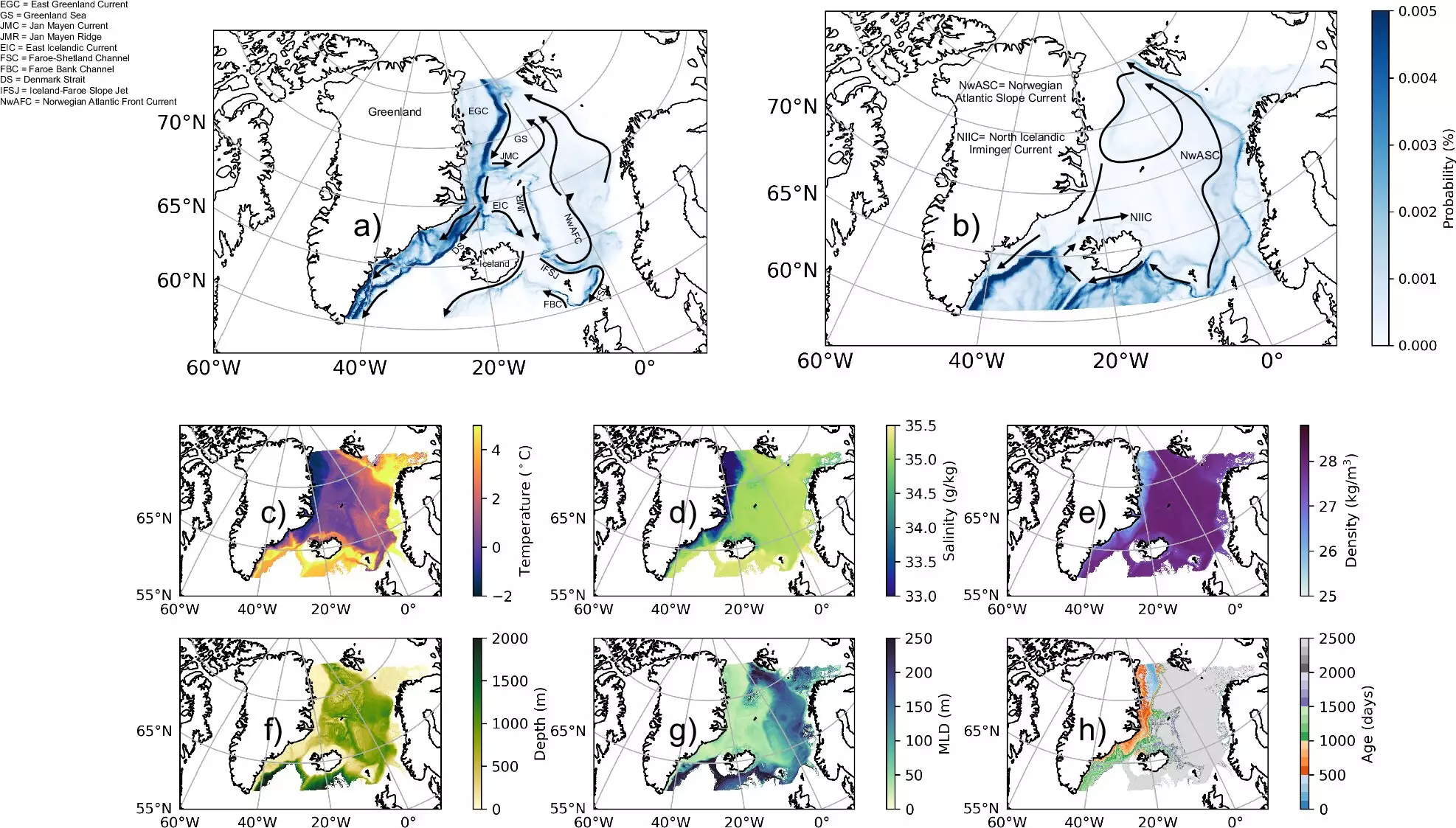A recent study conducted by researchers from the University of Southampton, the Indian Institute of Technology Bhubaneswar, the National Oceanography Center, and Stockholm University has unveiled the crucial importance of the mixing of Atlantic and Arctic waters in sustaining the Atlantic Meridional Overturning Circulation (AMOC). This circulation system plays a significant role in regulating Earth’s climate by distributing heat around the planet and maintaining relatively mild temperatures in Northern Europe. The study, published in Nature Communications, provides valuable insights into how the interaction between Atlantic and Arctic waters contributes to the strength of the AMOC.
The researchers discovered that the lower limb of the AMOC, which consists of deep, cold, dense water flowing southward in the Atlantic Ocean, is composed of 72 percent Atlantic waters and 28 percent Arctic waters. As warm water from the tropics moves northward and loses heat to the atmosphere in the North Atlantic, it becomes denser and sinks to great depths. This dense water then travels northward where it mixes with colder, fresher Arctic waters, making it even denser before flowing southward and reinforcing the AMOC’s strength.
The Impact of Water Mixing on Climate Change
The study challenges previous assumptions that focused solely on heat loss in specific regions without considering the critical role of Atlantic-Arctic water mixing. It highlights that 33% of the transformation of warm, salty water into colder, fresher, and denser water is attributed to the mixing of Atlantic and Arctic waters, with the remaining 67% being interactions between the ocean and the atmosphere. Understanding these processes is crucial as models predict that the AMOC may weaken as the planet continues to warm due to climate change.
A weaker AMOC circulation, similar to what occurred during the last Ice Age, could have significant consequences for global climate patterns. It could lead to much colder temperatures in Northern Europe, sea level rises along the eastern coast of the United States, and potentially irreversible changes to the planet’s climate. Furthermore, a weaker and shallower AMOC could shorten the time carbon dioxide stays in the ocean before being released back into the atmosphere, accelerating climate change and its impacts.
Professor Robert Marsh, a co-author of the study, emphasizes the importance of accurately representing water mixing processes in climate models to better predict future climate scenarios. The insights gained from this research shed light on the complex interplay between climate and global ocean circulation processes. Dr. Dipanjan Dey, the lead author of the paper, underscores the need for climate models to account for the role of the mixing of Atlantic and Arctic waters in order to improve our understanding of these critical processes.
The study’s findings highlight the indispensable role of the mixing of Atlantic and Arctic waters in sustaining the AMOC and regulating Earth’s climate. By deepening our understanding of these processes, we can better prepare for and mitigate the potential impacts of a weakened AMOC on global climate patterns. It is essential that future research continues to explore the intricate dynamics of ocean circulation and their implications for climate change.


Leave a Reply